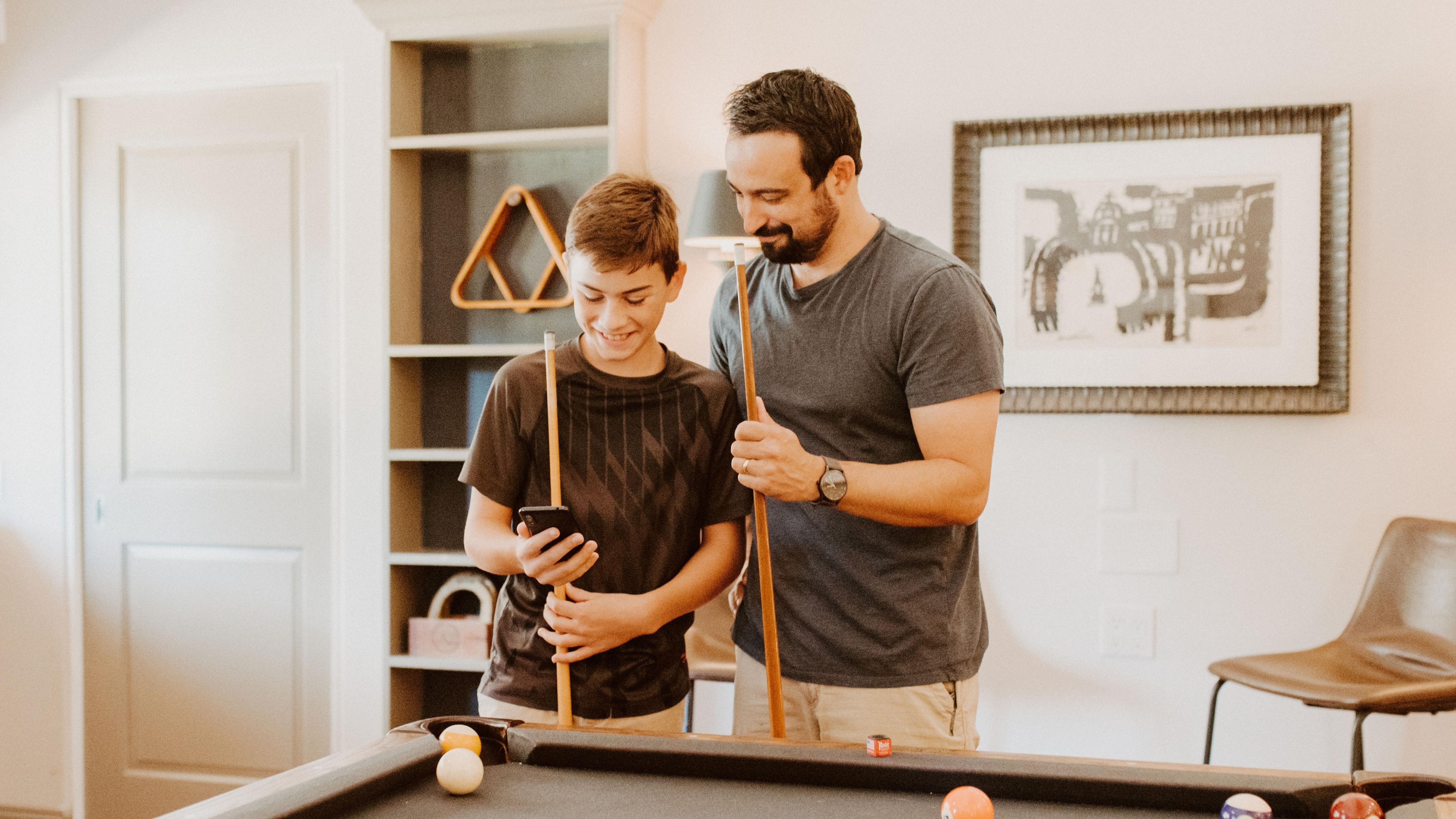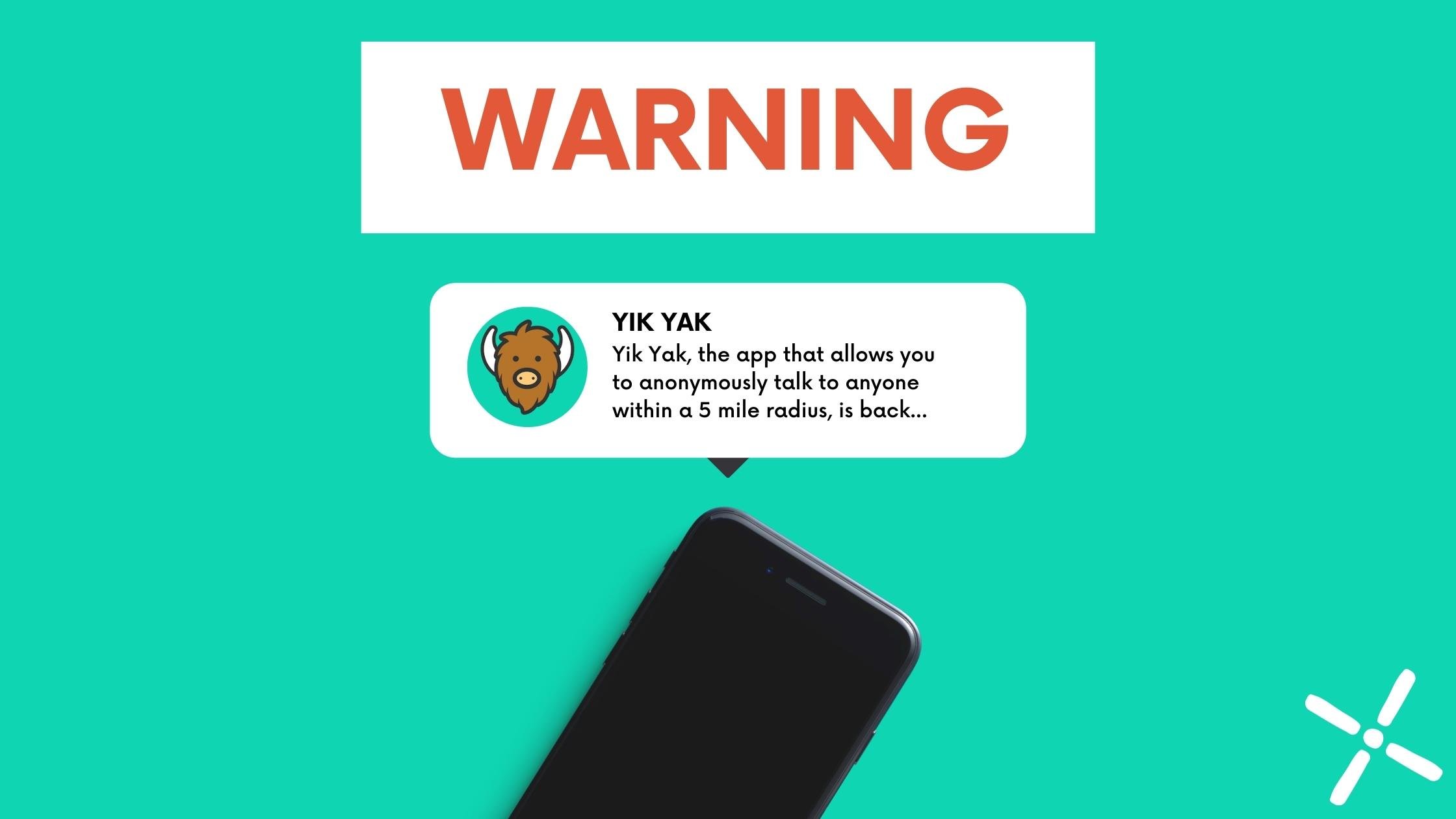Laid-Back Parenting Might Answer Your Tween or Teen Needs

By trusted Pinwheel affiliate
Hillary Gruener of Word From The Bird
As a parent in this day and age, it's challenging to reconcile being laid-back when we know the many dangers in the world that could harm our kids. Most of us would agree there’s a lot out there to fear when your objective is to raise healthy individuals. But we mustn’t let our fear of the world turn into controlling, uptight parenting. Be assertive about what your kids are up against – after all, it’s your responsibility to keep them safe physically, mentally, and emotionally. But while it’s natural for parents to hold tight to their children and desire to protect them from everything, sometimes, the very thing you desire for them can begin to work against your relationship. Good-intentioned parenting can quickly turn into fear-mongering control.
I desire to teach parents how to establish a relationship with their teens that, as they begin to independently practice their individuality more and more in a world full of confusion and darkness, you will be the one they confide in, not the one they run from. By truly understanding your role in their life, you will soon notice that the objective is to prepare them for the world they WILL grow up in, not for the one we WANT them to grow up in. This never includes controlling them or making them do what you want just because you said so. If you're going to raise robots, this would be your angle.
We cannot control our kids, let alone the world. The sooner you understand your role is to be their teacher, not their controller, the sooner mutual trust will begin to influence your relationship with your teen positively.
Letting Go is the First Step to Laid-Back Parenting
Our kids need us to let go in different ways at appropriate ages. Letting your child go simply means you recognize they are their own person, and you do everything in your power to help them discover their potential. For example, when your child begins to walk, they often learn the fastest by falling. It’s our job to let go and let them fall; otherwise, they won’t recognize they can do it independently. As they continue to mature, it’s beneficial for parents to create opportunities for their kids to make their own decisions and practice independent play to build their self-confidence. The look you see in your child’s eyes when they first do something all by themselves is priceless. These moments are pivotal to your child’s development. This doesn’t mean we leave them to solve every problem that comes their way, but rather, remind them we are there for them if they need us while also encouraging them to think for themselves.
Unfortunately for parents, the teenage years are often the most emotionally wearisome while simultaneously being the most challenging age to let go. As they begin to venture out and make big, sometimes life-changing decisions for themselves, it’s tempting to want to jump in and save them. After all, you’ve been there and done that. But wouldn’t it be amazing if instead of wearing yourself out trying to intervene when they are facing a challenge, they come to you, not because they have to, but because they want to?
What Being a Laid-Back Parent is NOT
Don’t misunderstand being “laid-back” for being passive or lazy – you shouldn't allow them to do everything with no supervision or consequence. Being laid-back simply means that as you allow them privileges and put your trust in their decisions, you set the stage for them to come to you with anything. If they mess up, they will confide in you, knowing you will allow grace to prevail in your relationship. And while that doesn’t negate consequences, it means they know your love isn’t conditional to their performance.
In the face of continual discipline and correction, without the balance of grace and acceptance, kids will either fake it till they make it (get out of the house) or internalize letting you down and not think so highly of themselves. A parent’s audible voice often becomes a child’s inner voice – how they speak to themselves.
What it Means to be a Laid-Back Parent
So what does it mean to be a laid-back parent? It means you are your child’s safe space to share their heart, not the dreaded place they want to keep anything and everything hidden from.
Here’s an example of how being a laid-back parent can turn a bad situation into a teachable, life-changing event.
Let’s say your teen made a bad choice and cheated on their test. You get a phone call from the school principal to inform you of what happened. Before you confront your child, you begin to remember what it was like as a teen to want to do well on a test while also not wanting to stay up late to study. Then, you begin to ask yourself – why does he feel the need to cheat? Is the pressure too much for him? Who is he trying to impress? Is he afraid I’ll be upset if he doesn’t get a good grade?
Before you confront your teen, asking yourself these questions can avoid parents' common arguments with their big kids. By putting yourself in their shoes and assessing the situation, you will naturally create a safe space for your child. Instead of starting the conversation with anger, causing your teen to put up their defenses, you start with listening to understand, not respond, followed by empathy.
“Hey, I found out what happened at school. Why don’t you tell me what happened.”
After your teen explains what happened, you begin to express how you sometimes feel tempted to make bad choices even as an adult, so you know how that feels. And sometimes, you even give in to that temptation – identify with them. Ask questions. Try and understand the WHY. There was a reason they did it, even if it was as silly as trying to be cool. Your child will quickly realize that you don’t want to simply punish them because they were bad, but you want to understand them more. In this situation – let’s say the teen boy cheated because he felt a lot of pressure from his teacher to get a good grade, not wanting to let them down – you recognize that in their immaturity, they made a call they weren’t proud of. You also got an insight into what your child is feeling pressured with at school. It might even lead you to have a conversation with the teacher, explaining that you would rather your child be mentally healthy than getting straight A’s.
If you had started off the conversation with anger, they would have yelled; you would have yelled, and unraveling the WHY would have never happened. They would have been grounded for a few weeks, perhaps more because of their disrespectful response, and that would be that.
But because you took it upon yourself to understand the WHY, you notice they understand they're wrong – you work through it, discuss it, and move on. While a consequence might be necessary, your child will now fully grasp why you’re giving a consequence but still know that you love them, can identify with them, and have their best interest at heart. Now, looking at both scenarios, which option do you think your child will learn the most?
One option will teach them that they don’t have to be perfect, understand their actions and how one wrong choice can lead to many, and build mutual trust and respect for one another. The other option will distance you both emotionally, create a gap in your relationship that will be hard to bridge, and give your child reason not to confide in you.
Parenting is like walking a tightrope blind. It’s fragile and hard and frustrating, but at the same time, rewarding and incredible and teaches us so much about ourselves and the world. It’s beautiful. And when we allow ourselves to look in the mirror as we journey through parenting, we will soon realize that we are no better than our kids and are, in fact, growing up alongside them.
Laid-Back Parenting is About Turning a Negative into a Positive
If you think back to your childhood, you would most likely remember the negative moments you experienced with your parents – it’s human nature to remember the negative more than the positive. But how do you want your child to feel about their time at home? Peaceful? Safe? Positive? We all want this. Does that mean there should never be confrontation or difficulty? Absolutely not. There will be very challenging seasons in your parenting, whether you welcome it or not. I’m simply challenging parents to take responsibility to end a negative experience with a positive one.
In the scenario above, the positive outcome and conversation far outweighed the negative one. As a result, your child will most likely look back and remember your grace, your understanding, and your unconditional love.
Children are like adults whose initial reaction to control or authority is to question it. If you take one look around in this world, you get a pretty quick idea of what I mean. People who have experienced freedom and know what it means to be free aren't just sitting back and allowing others to control them. It’s in our nature to push back, and when your kids do this, it’s a good sign that they are becoming their own person. Talking back is a good sign. And as it’s good and healthy for our kids to question us, it’s our job to teach them how to do it respectfully.
But What if My Personality is Not “Laid-Back?”
Let’s say you’re a frantic person, who worries and fears a lot, but you’re also a parent. Well, I always encourage parents with this – to be the parent you want to be, it’s important to do the internal work to be the person you want to be.
Start there. Self-reflect. As you begin to parent your kids, parent yourself. Recognize the areas your parents messed up and break the cycle. Parenting is hard, mostly because you’re confronted DAILY with your shortcomings. You become very aware of the areas you need growth while also helping your child grow.
So if you’re not laid-back, then remember this. You never had control in the first place, so recognizing that will be your first step. Then, put yourself in your child’s shoes as often as you can. Also, don’t let your negative childhood experiences dictate your parenting, whether the pendulum swings or stays exactly where it was.
Good parenting makes sure your child feels safe to share their heart with you – the good, the bad, and the ugly. Be their safe space, and you will find yourself journeying alongside them through their challenging teenage years.
Rebellion is Normal
“Every child will rebel at one point or another. The extent to which they rebel is determined by the parent’s reaction to it.” Bill McKee
I love this quote written in 1975. It still applies today and blatantly reminds us that rebellion is inevitable, healthy, and normal. Our reaction to it will often determine the outcome. If you’re facing a rebellious teen, I feel for you. But it’s important to remember that your teen is their own person with their own choices. They will make the wrong ones. They will mess up, just like you. Now, ask yourself. Do you want to be the one on the outskirts, not knowing what they are up to in life? Or do you want to be the one they come back to, knowing your love was never conditional to making the right choices or being perfect?
And remember this. Your teen needs you to show them love, just as much as when they were young, no matter how offended they seem at your attempt. They need a hug, a pat on the back, or simply for you to want to sit by them. They need you to continue to show up for them, even if they reject the offer. They need you to keep asking if they are okay, if they need anything, or if there is something hard to say they want to get off their chest. They need you to ask them about their day at school and what happened. They need you to initiate doing something with them that THEY want to do. They need to be reminded of how awesome they are. They need to know you’re proud of them. They need to hear that they look nice. They need your home to be the one they invite all their friends to because you’re so laid-back and awesome and let them play video games and eat all the snacks.
Being laid-back isn’t always about being the “cool” parent. It’s about being the parent that cares more about their child’s heart than about their child’s behavior.
Want to learn about Pinwheel and our Mission?
Click Here!
Related Articles
The 36,000 Texts That Led Me to Working for Pinwheel
"I sent 36,000 texts the first month I had a “REAL” phone"
It was the summer of 2009, I had mowed many lawns and had done odd jobs to pay for two specific things I had...
My Middle School Kid Wants Social Media
These days, it's hard for parents to avoid social media. You probably use it, your friends use it, and chances are your kids use it too. More and more young children are...
Yik Yak is back: why we're concerned
Imagine your 10-year-old lying about their age to create a social media account, connecting with a user-base within a 5-mile radius, thriving and nosediving off upvotes...
.jpg)

